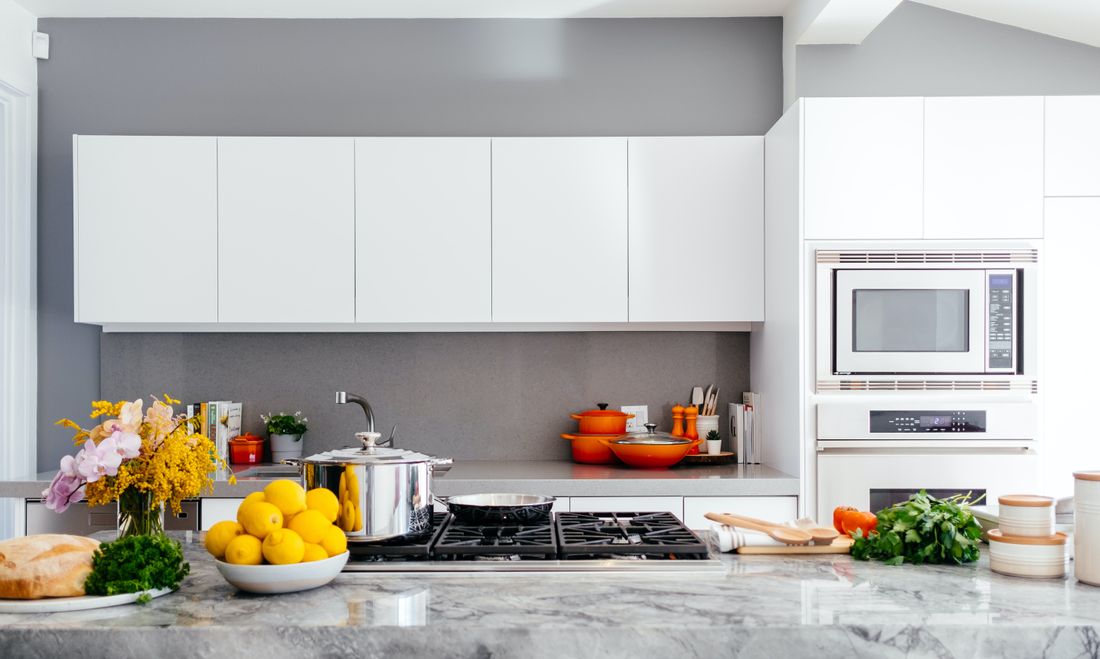1 - Turn kid cast-offs into breakfast
If you’re a parent of a small child, you are likely very familiar with the apple with two bites out of it and the half-eaten banana. Rather than toss these into the compost, you might want to use a paring knife to cut off the bitten-off portion and then store the rest into the freezer for future smoothies—win-win!
2 - Think like a restaurant owner
Restaurants tend to practice a FIFO “First In First Out” system. You probably don’t have a walk-in cooler. However, the trick is basically to remember that when you’re unpacking your groceries, you consciously put your newly purchased foods behind the older ones.
3 - Upcycle those beautiful glass jars
A lot of people will buy new glass storage containers when they focus on reducing plastic at home, but you can upcycle glass jars. Soak your containers in hot water, scrape with a glass scraper, and you’ve got yourself a free and waste-free place to store food.
4 - Try composting your food waste
Start by storing your fruit and veg scraps in a bag in the freezer for a week and bring them to your local composting program (often at community gardens). If you have the space, you might want to consider graduating to a home compost bin.
5 - Buy your produce “naked”
Try to buy most of your produce without any packaging, because it’s not just grocery and shopping bags that are the problem: it’s all the bags, including produce bags. You’re going to wash everything at home anyway, so you shouldn’t be worried about placing your produce straight into your basket.
6 - Learn a back-pocket recipe for lonely vegetable
Making stir-fry and soups are a great way to use up random vegetables that are too small to make a side dish on their own. Put together a half head of broccoli, a lone carrot, half a bell pepper, and a leek and you’ve got yourself a stir-fry—and almost any root or shoot can get tossed into a soup pot.
7 - Cook Down The Pantry
Make a conscious effort to work my way through the non-perishables in your pantry so that nothing goes to waste. A couple of kid-friendly ideas to use them up are clean-out-the-pantry granola and multi-grain pancakes. You can easily substitute half the flour in a waffle or pancake recipe (think Mark Bittman’s basic pancake recipe) for the random whole grain you want to use up.
8 - Try Low-Waste Cleaning
DIYing your cleaning products is a noble endeavour (Cameron has tons of recipes in her book Simply Sustainable). A less wasteful solution has been to seek out concentrated cleansers that you add water to at home, reducing the packaging waste to almost zero.
9 - Cut Back On Paper Towels
Two things that really helped: Swedish-style dishcloths, which can be used to clean up spills; and old T-shirts cut into rags, but you don’t have to go cold turkey: To start, just place your roll of paper towels in a less convenient location, like under the sink.
10 - Save Every Little Leftover
Most people throw out their leftovers if they have less than a serving left, but you can save everything small leftovers and assemble them into a curated selection just like you would at a salad bar. Picture a small scoop of roast beets, a dollop of hummus, a piece of whole-wheat toast, and a handful of salad greens tossed with a little dressing. Teeny portions are great lunch items for both kids and adults.
